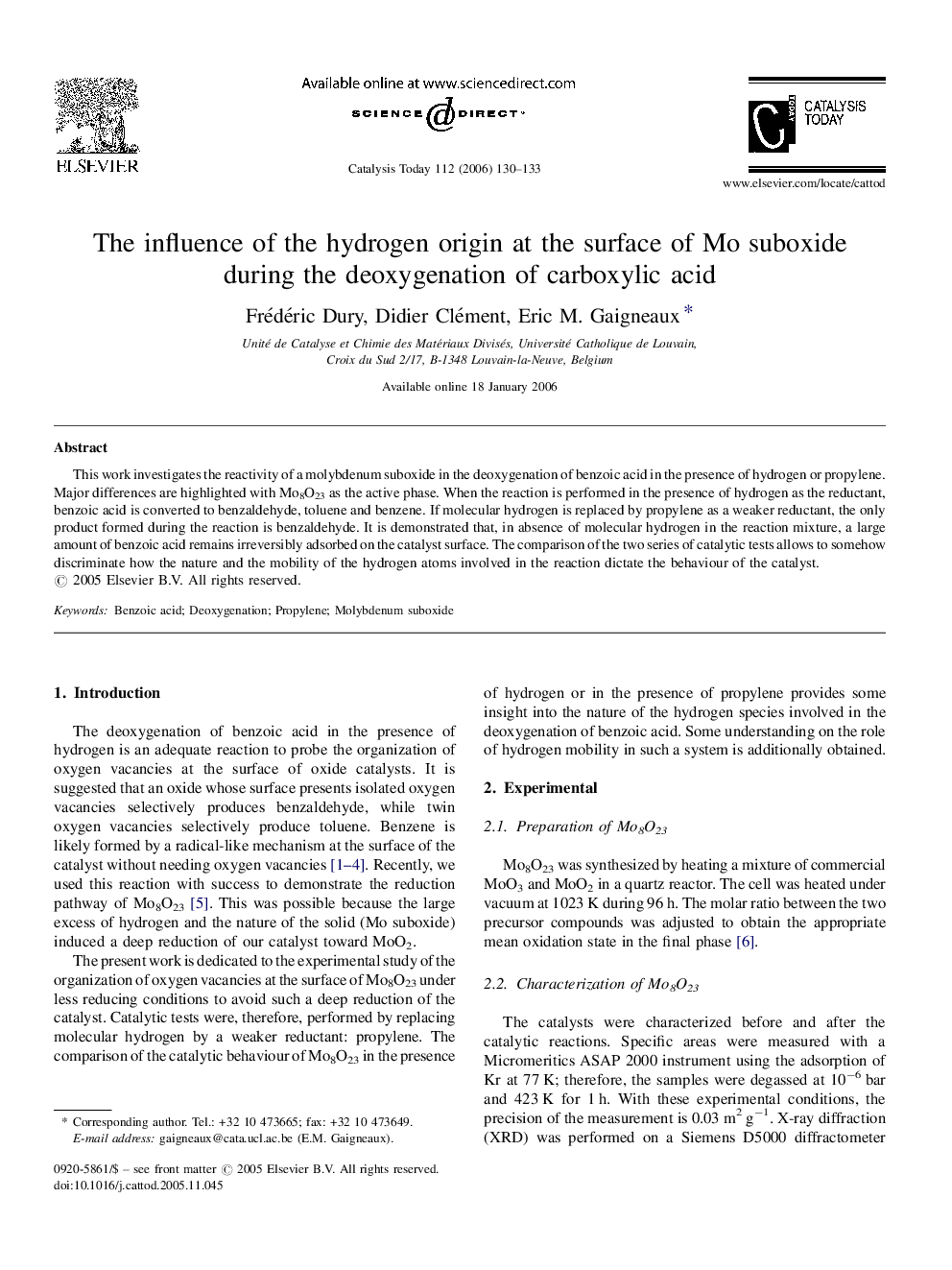| Article ID | Journal | Published Year | Pages | File Type |
|---|---|---|---|---|
| 58815 | Catalysis Today | 2006 | 4 Pages |
Abstract
This work investigates the reactivity of a molybdenum suboxide in the deoxygenation of benzoic acid in the presence of hydrogen or propylene. Major differences are highlighted with Mo8O23 as the active phase. When the reaction is performed in the presence of hydrogen as the reductant, benzoic acid is converted to benzaldehyde, toluene and benzene. If molecular hydrogen is replaced by propylene as a weaker reductant, the only product formed during the reaction is benzaldehyde. It is demonstrated that, in absence of molecular hydrogen in the reaction mixture, a large amount of benzoic acid remains irreversibly adsorbed on the catalyst surface. The comparison of the two series of catalytic tests allows to somehow discriminate how the nature and the mobility of the hydrogen atoms involved in the reaction dictate the behaviour of the catalyst.
Keywords
Related Topics
Physical Sciences and Engineering
Chemical Engineering
Catalysis
Authors
Frédéric Dury, Didier Clément, Eric M. Gaigneaux,
